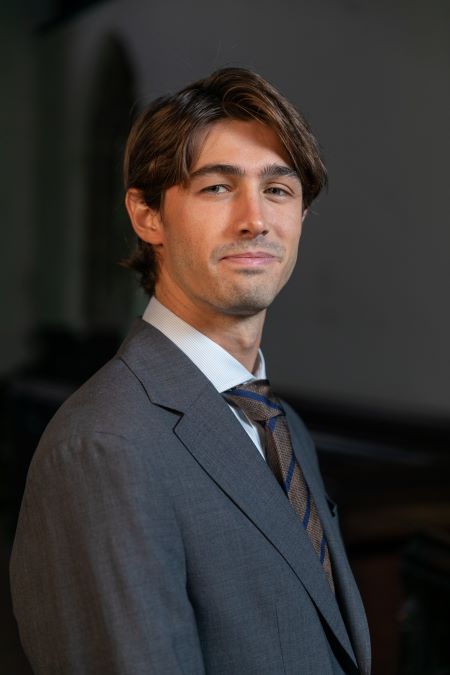A columnist for alternative football mag When Saturday Comes once said that admitting you had left your football team for another was more shameful than owning up to being a member of the Chris De Burgh fan club.
It’s hardly ever heard about and almost certainly never confessed to - and yet, Mateo Peyrouzet García-Siñeriz did just that, when he swapped supporting Real Madrid for a fourth division Spanish side.

Mateo would love to play a part in Spain's bid to host the World Cup
Mateo, who is currently studying the FIFA Master in Management, Law and Humanities of Sport at DMU's International Centre for Sports History and Culture (ICSHC), has always been passionate about football, but somewhere along the way lost his passion for the Galacticos.
“I was a very devoted Real Madrid supporter but different factors led to a gradual weakening of that emotional attachment, while I grew closer to another much smaller club,” Mateo says.
"Now when I am asked what team I support, having been born and raised in Madrid, most people expect it to be Real Madrid. The reality is quite hard to explain.
“My idea about being a supporter is that you have to have a strong connection. As a football fan it is quite important to be able to put your finger on that feeling of belonging. It is very visceral.
“The club that I now follow is in the fourth division of Spanish football – a local team – and I feel that supporting them is a more authentic and engaging experience at a personal level.

The FIFA Master students on campus at the start of their course
“With a club like Real Madrid, you are always expecting them to win titles and I find that if you expect your team to win week in and week out, it takes away some of the magic in football. With smaller clubs, every game counts because of promotion and relegation and you can easily feel a part of the community.”
Mateo is one of 27 students on the prestigious one-year course, which is co-ordinated by the Centre International d’Etude du Sport (CIES) and supported by football’s world governing body FIFA.
It involves students dedicating a term of study here at DMU’s ICSHC on the Humanities of Sport, where students explore sports history, ethics, human rights and sports diplomacy, for example, before also spending a term at both the SDA Bocconi School of Management in Milan, Italy, and Switzerland’s University of Neuchâtel.
The course was this year named the best postgraduate sports management course in Europe for a record 10th time by the influential SportBusiness global rankings.
One of Mateo’s ambitions is to engage with the world of sports diplomacy. Managing relations with his Real Madrid supporting grandfather and aunt – who instilled his passion for football and Real at the age of 10 – has probably been good practice!
After graduating from the University of Exeter (he is fluent in Spanish, French and English) Mateo returned to Spain and started working at a think tank in the foreign policy department.
He then started a masters in geopolitics in Madrid, going to work in the mornings and then university in the afternoons. He then looked into sports diplomacy and focussed on football – the subject he is most passionate about. He completed his course with the highest grade in the university with a thesis titled “The value of sport as a tool for Spain’s international projection”.
“That got me thinking a bit about my future,” Mateo says. “Before starting on the FIFA Master my career direction was maybe more in international politics.”

The class of 2022/23 visiting Leicester City's King Power stadium
“I found there were interesting things to say about politics in football and thought with my profile and my interests I would really like to have a job and a career working with international federations like FIFA and UEFA, for example.”
“International football retains a lot of what I love about football which is the passion. The players feel it is special for them. They are not playing for the money. They are playing to fulfil their dreams.
“And Spain is bidding to host the World Cup in 2030 with Portugal and Ukraine. That is interesting from a political position.
“As a football lover and someone who is passionate about big events I would love to participate in that.”
So, does sport and politics really mix?
Mateo says: “Politics has always been reflected in football. A vivid example in this World Cup was the Iran national team not singing the national anthem in their opening game against England, with the backdrop of the women’s protests against the regime.
“Football is always going to be a part of diplomacy. That is why I am so interested in it.
“Sports organisations are inherently political and a lot of political decisions are being made in football on a day-to-day basis. Politics is a part of sport, just as sport is a part of politics.”
Posted on Thursday 22 December 2022